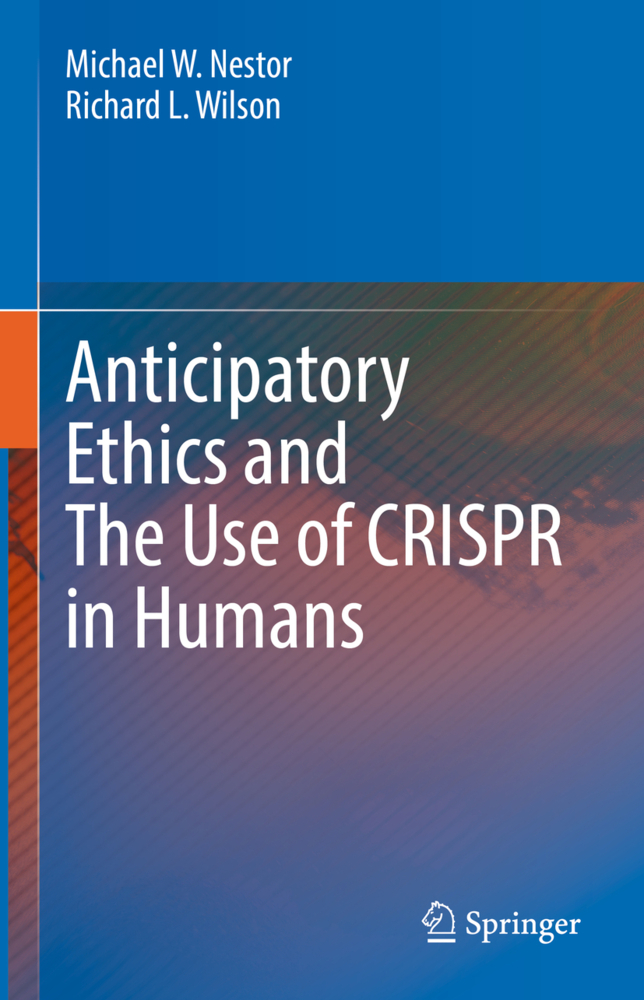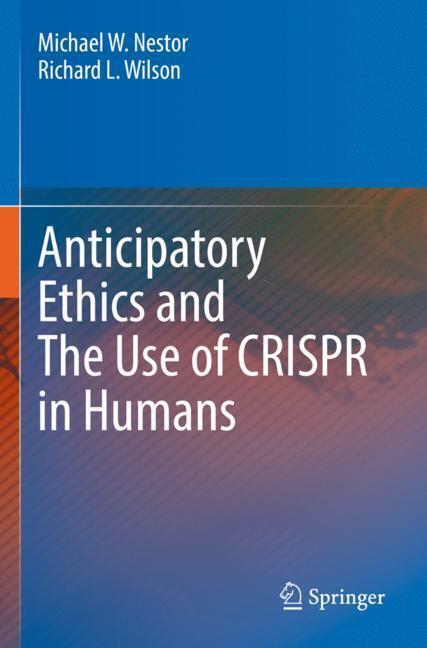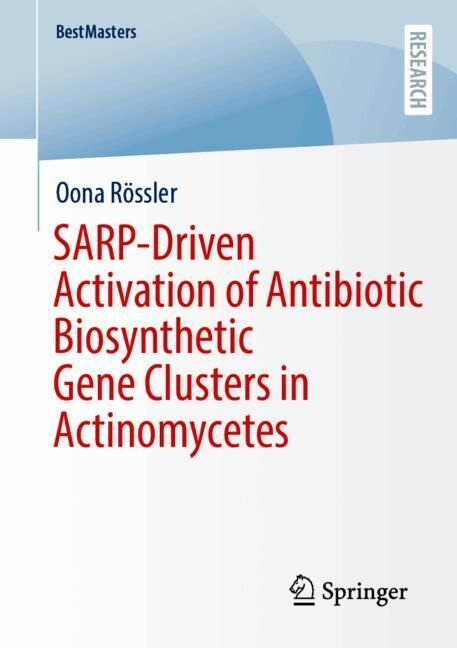Anticipatory Ethics and The Use of CRISPR in Humans
The future of gene editing in humans will involve the use of CRISPR. How we think about the combination of the scientific, ethical, and moral aspects of this technology is paramount to the success or failure of CRISPR in humans. Unfortunately, the current scientific discussion around CRISPR in humans has left ethics trailing behind due to the rapid pace of innovation. New modes of ethics and stakeholder participation are needed to keep pace with rapid scientific advances and provide the necessary policy and ethical frameworks necessary to help CRISPR flourish as an important health care tool to treat human disease. This requires intense interdisciplinary collaboration and discussion between scientists and philosophers, policymakers and legal scholars, and the public.
Dr. Michael W. Nestor (a neuroscientist who actively uses CRISPR in pre-clinical research) and Professor Richard Wilson (a philosopher who focuses on anticipatory ethics) set out to develop a new ethical approachconsidering the use of CRISPR in human targeted therapies. The field of anticipatory ethics is uniquely poised to tackle questions in fast-evolving technical areas where the pace of innovation outstrips traditional philosophical approaches. Furthermore, because of its "anticipatory" nature, this type of analysis provides the opportunity to look ahead and into the future concerning potential uses of CRISPR in humans, uses that are not currently possible.
Nestor and Wilson collaborate both scientifically and philosophically in this book to forecast potential outcomes as the scientific and medical community goes beyond using CRISPR to correct genes that underlie diseases where a single gene is involved. Instead, Nestor and Wilson envision CRISPR in complex, multigenic disorders with a specific focus on the use of CRISPR to edit genes involved in mental traits like IQ or other cognitive characteristics. They argue that the use of CRISPR to modify genes that are potentially important for mental traits represents a particular category for special consideration from scientists, policymakers, the public, and other stakeholders.
Nestor and Wilson explain why using CRISPR to alter mental states is very different from treating a disease like cancer by combining the latest scientific advancements with anticipatory ethics and philosophical phenomenology. Their analysis considers the role that mental states play in personhood and the lived experience-as genes that can change mental/cognitive attributes like IQ have wide-ranging effects on the lived experience in ways that are categorically different from other attributes.
This book was written to set a non-exhaustive framework for shared understanding and discussion across disciplines and appeal to scientists and non-scientists alike. This appeal is made inclusively, inviting all stakeholders to engage in active dialogue about the appropriate context for using CRISPRand other gene-editing technologies in humans. It provides policy analysis and recommendations for assuring the most inclusive, equitable, and ethically sound use of CRISPR in humans, concerning its positive potential to treat mental conditions like depression, schizophrenia, Alzheimer's disease, autism, and the potential to induce other cognitive enhancements.
Chapter 1: Brief Introduction to CRISPR Cas 9.- Chapter 2: Introduction To Anticipatory Ethics.- Chapter 3: CRISPR, Phenomenology and Lived Experience.- Chapter 4: CRISPR and the Concept of Personhood.- Chapter 5: The use and access to CRISPR in historically socio-economically disadvantaged and marginalized communities
Chapter 6: Future use of CRISPR: Gene Drive.- Chapter 7: Future use of CRISPR II: CRISPR Kill Switches.- Chapter 8: Domestic and International Regulation of CRISPR.- Chapter 9: Policy Recommendations with respect to CRISPR Germline Editing in Humans.- Chapter 10: Conclusions.Nestor, Michael W.
Wilson, Richard L.
| ISBN | 978-3-030-98367-3 |
|---|---|
| Artikelnummer | 9783030983673 |
| Medientyp | Buch |
| Copyrightjahr | 2022 |
| Verlag | Springer, Berlin |
| Umfang | XIX, 145 Seiten |
| Abbildungen | XIX, 145 p. 13 illus., 12 illus. in color. |
| Sprache | Englisch |











